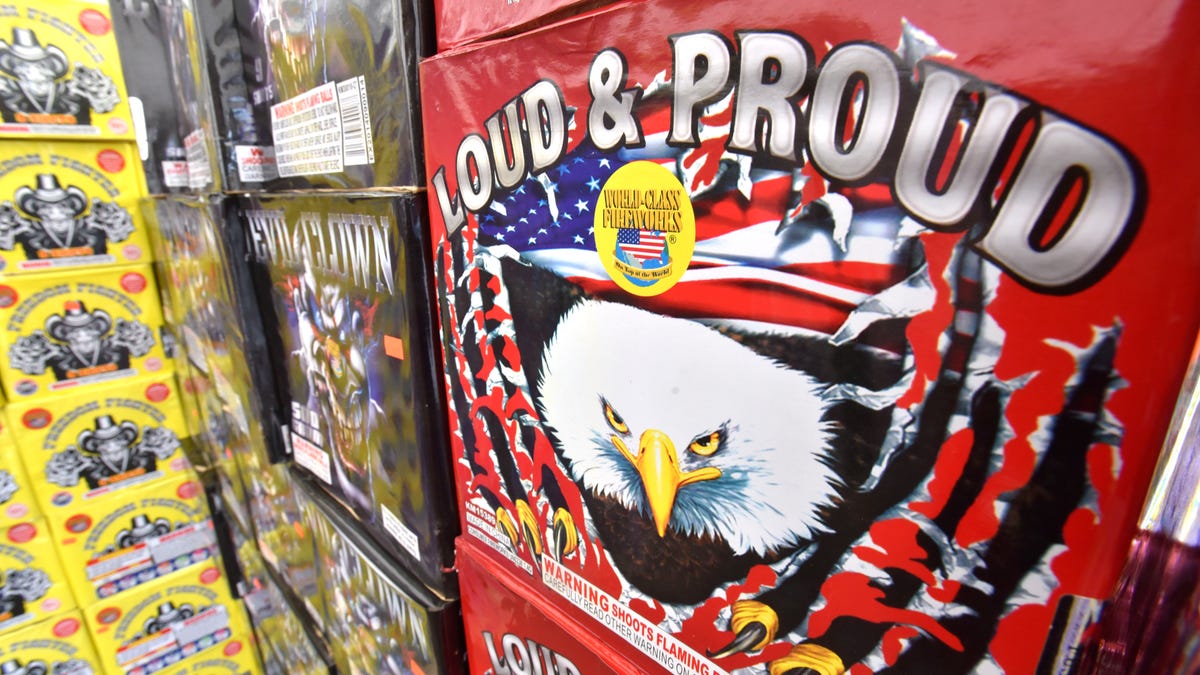Safety tips for 4th of July fireworks and bonfires in Michigan

Thanks to recent rains across the state, Michigan is well-prepared for Independence Day fireworks and bonfires, but experts still advise caution as the holiday approaches.
Only part of central Michigan is considered “abnormally dry” in the latest National Drought Monitor report. Above-average rainfall in the first half of the year prevented the kind of dryness that could make campfires and fireworks especially dangerous.
It won’t last forever. Michigan’s typical dry season begins in mid-July and increases in intensity in mid-August. This year will likely follow that pattern, said Paul Rogers, a fire protection specialist with the Michigan Department of Natural Resources.
“Conditions are actually much better than last year,” Rogers said, referring to the dry early summer when Gov. Gretchen Whitmer warned Michigan residents against building campfires. “We’re experiencing the typical seasonal drought, but many areas of the state have had quite a bit of rain, so conditions are pretty good.”
Around Independence Day, July 4, Michigan firefighters are mindful of the importance of handling fireworks and campfires, even when conditions are relatively good.
Despite relatively good conditions across the state, tall grass or bushes could still be unexpectedly dry, said Redford Township Fire Chief Scott Demhoff. And they burn quickly.
“People don’t realize there’s actually a fire until it’s too late,” he said.
Demhoff recommends watering the lawn before lighting a campfire.
The biggest problem with campfires in Redford Township is smoke, Demhoff said. Township residents should burn seasoned wood, not freshly cut, to keep smoke levels down and avoid having smoke fill a neighbor’s yard or house.
Humid weather further exacerbates the problem because the smoke hangs low to the ground and does not dissipate, says Demhoff.
Fire safety is also a concern in Northern Michigan on the Fourth of July weekend, as the region experiences heavy holiday traffic. A 100-foot-tall Smokey Bear balloon will serve as parade marshal for the DTE Energy Foundation’s Cherry Royale Parade at the National Cherry Festival in Traverse City on Saturday, marking the character’s 80th birthday.
“Smokey is an icon of fire prevention,” Rogers said. “The balloon draws attention to Smokey’s very important cause.”
The reason? Forest fire prevention. This is especially important when setting off fireworks on the Fourth of July, Rogers said.
“We always ask people not to set off fireworks in the forest because they can stay there and smolder for a long time,” he said.
As for campfires, Rogers says people should check to see if they are eligible before gathering firewood. The DNR determines when a permit is needed to burn in the Upper Peninsula and northern Lower Peninsula. In the southern Lower Peninsula, those decisions are made by municipalities or local fire departments.
Always have water and a shovel ready before lighting a campfire, Roger advises, and never throw spent fireworks into the fire.
“You don’t know what’s left in them,” he said. “Put them in a bucket of water and let them soak.”
The weather forecast for July 4 and the weekend is fairly typical for July, said Alex Manion, a National Weather Service meteorologist stationed in White Lake.
Temperatures on July 4 will be in the high 30s, with Detroit a few degrees warmer, Manion said. There will be only light winds during the day. There could be showers or thunderstorms in the afternoon and evening, but only with about a 25% chance, he said.
Meteorologists expect showers and thunderstorms Friday afternoon, Manion said. The rest of the weekend will likely be dry, with temperatures around 27 degrees on Saturday and between 27 and 29 degrees on Sunday.


